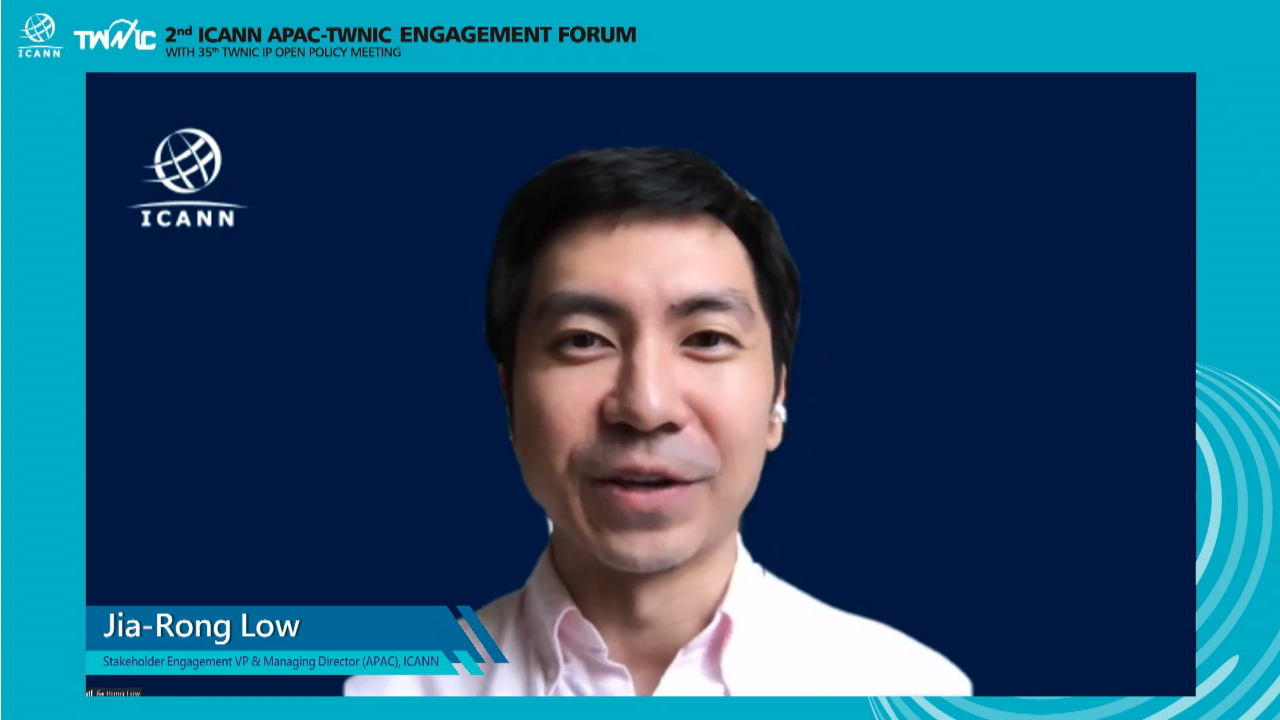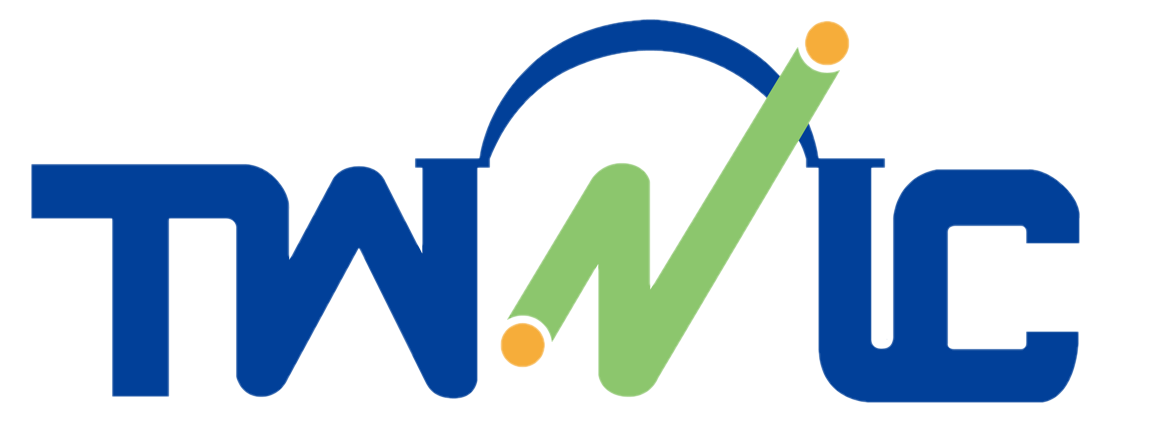| Vice President, Stakeholder Engagement and Managing Director – ICANN Asia Pacific |
| 中文翻譯 |
We’ve just wrapped up the Second ICANN APAC-TWNIC Engagement Forum held from 15-16 April in hybrid format. Local participants attended in-person, with remote participation available for regional participants and beyond.
The Forum was inaugurated in 2019, targeting the local community. We share a vision with our co-host, TWNIC, that Internet governance is a shared responsibility by all stakeholders and hope that the Forum can strengthen our engagement with the local community.
The community in Taiwan is comprised of a high-tech workforce, and takes a proactive approach to the development of emerging technologies, with heavy investments by global companies on artificial intelligence and Internet of Things. Despite these factors, industry stakeholders’ participation in ICANN remains relatively low. I think our sister Internet governance platforms, APNIC and IETF, will also stand to benefit from wider community participation.
Engaging Virtually
Plans for the Forum had to change in 2020 due to the COVID-19 pandemic, but as we’ve quickly learned to engage virtually, the Forum returned this year with a stronger regional and international flavor. The speaker line up featured Vint Cerf, one of the fathers of the Internet (catch his opening speech) and included representation from economies such as Australia, India, Japan, Vietnam, etc. The Forum also featured the 35th TWNIC Internet Protocol Open Policy Meeting (IP OPM), which broadened the Forum’s discussions on topics such as cybersecurity incident response and management, digital transformation, and IPv6 deployment. Click on the links for the session recordings.
We also offered YouTube livestreaming which garnered many viewers – close to 700 views for day one and 300 views for day two. One of the benefits of virtual engagement is the ability to view a session at your convenience, in the unfortunate event you missed the real-time opportunity to participate.
Participating in Internet Governance
Participation in Internet governance is important as no one person, organization, company, or government controls the Internet. The evolution of the Internet is shaped by multistakeholders through shared principles and decision-making procedures. These result in the development of global standards, such as those at the IETF on protocol parameters; IP addressing at Regional Internet Registries (APNIC in our region); or domain name policies at ICANN.
Participation does not necessarily mean the need to join discussions at platforms like APNIC, IETF, or ICANN. Globally-agreed standards need widespread adoption to keep the Internet safe, secure, and resilient, and prepare for the next billion Internet users. This is where industry – such as Internet service providers – come in to adopt the latest standards and technologies such as IPv6, Resource Public Key Infrastructure (RPKI), Domain Name System Security Extensions (DNSSEC), etc. Do check out our discussion on this topic at the Forum here.
Awareness is also required to achieve the widespread adoption mentioned above. This is where the civil society and end-user communities play a key role in the Internet governance space. A key topic that needs greater awareness, particularly for software and email providers, is the adoption of Universal Acceptance (UA), where domain names – long or short, or in different scripts – can be accepted by any software or application. This discussion was also featured at the Forum.
Check out the Forum’s website for the session videos, as well as more upcoming blogs of key takeaways from the discussions.
網路治理-建立一個區域性的社群
我們成功地在4月15至16日舉辦混合會議形式的第二屆ICANN APAC-TWNIC 交流論壇。在地的與會者可以現場參加,國際與區域的與會者則可線上參加會議。
首次論壇舉辦於2019年,面對的是台灣在地的社群成員。ICANN與我們的共同主辦單位TWNIC擁有一樣的願景,認為網路治理是所有利害關係人共同承擔的責任,也期望論壇可以強化我們與在地社群的交流。
在台灣的網路社群是由高科技的勞動力所組成,隨著國際公司大量投資人工智慧及物聯網科技,在地社群樂於主動瞭解甫在萌芽的新興科技發展。但即使有這些成長因素,產業相關利害關係人在ICANN的參與仍相對較不積極。與我們具有相同理念的網路治理平台:APNIC及IETF也將會在社群成員的廣泛參與中受惠。
虛擬交流
本次論壇的規劃在2020年因應COVID-19全球疫情而有所改變,但隨著我們快速學習如何虛擬交流後,論壇在今年納入了更多的區域及國際參與。講者清單包含Vint Cerf,網際網路之父之一(您可以在此重聽他的開幕致詞);及如澳洲、印度、日本、越南等各個經濟體的講者。本次論壇亦包含了第35屆TWNIC開放政策會議(IP Open Policy Meeting,OPM),拓展了論壇的討論主題如:資安事件應變及管理、數位轉型及IPv6佈署。連結為各場次的影片。
我們也提供Youtube線上直播,讓會議能擴及更多觀眾,第一天有接近700人次,第二天則有接近300人次觀看直播。線上直播參與的好處之一即是在您時間無法配合或錯過會議時仍可依您方便的時間隨選參與。
參與網路治理
參與網路治理非常重要,沒有單一個人、組織、商業公司或政府能控制網際網路。網路的演進是由多方利害關係人共享的原則跟決策機制所形塑。這些成果推動全球標準的發展,例如IETF在通訊協定參數的發展、區域網際網路註冊管理機構(亞洲的APNIC)在IP位址的發展,或是ICANN對域名政策的發展。
參與並不一定代表需要加入如APNIC、IETF或ICANN等平台討論。全球認同的標準需要廣泛的採納才能維持網路的安全、可靠與靈活,並準備好迎接新一波的十億網路使用者。相關產業如網路服務提供商(ISP)採用最新的標準與科技如IPv6、資源公鑰基礎建設(Resource Public Key Infrastructure,RPKI)、域名系統安全擴充(Domain Name Security Extension,DNSSEC)等。本次論壇活動的相關討論請參閱連結。
要達成前述的廣泛採納,認知也是相當重要的一個環節。這是公民社會與終端使用者社群在網路治理空間中扮演重要角色之處。一個特別是對軟體及電子郵件服務提供商來說,需要更顯著認知的關鍵議題是全球通用(Universal Acceptance,UA),網域名稱不論長短或是所使用的書寫文字均能受到所有軟體及應用程式的支援。此議題也在本次論壇中有所討論。
歡迎您至本次論壇的官方網站觀看各場次影片及後續於部落格更新的討論議題重點。
| 本次論壇主題相關文章請參閱部落格連結 |

